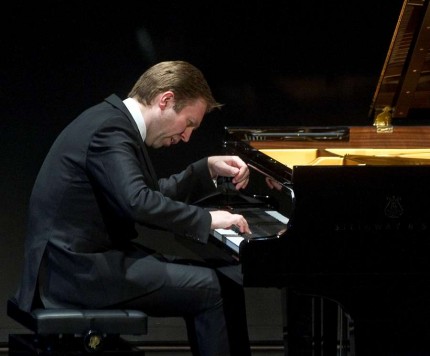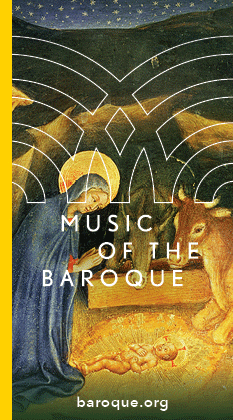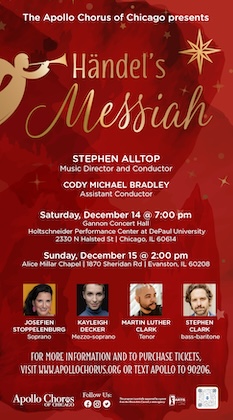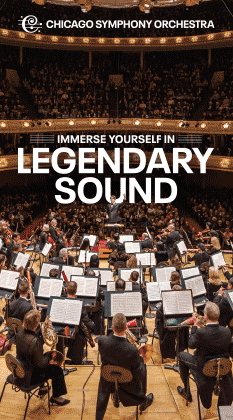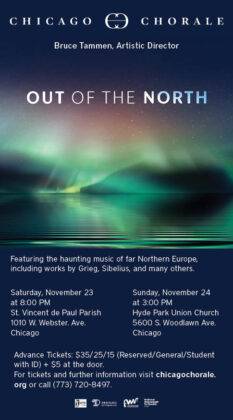With a new principal flute, Muti and CSO mix it up with winning results
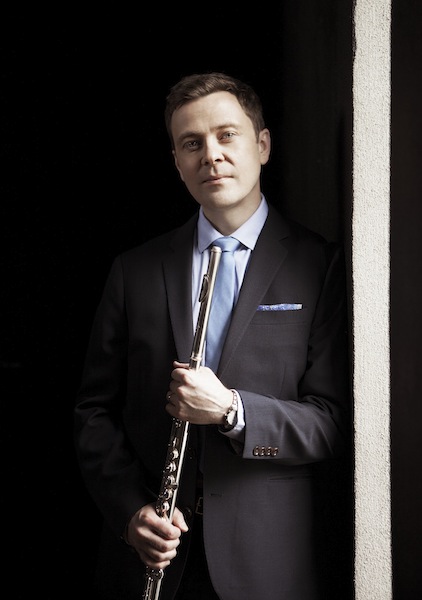
To no one’s surprise, the Chicago Symphony Orchestra announced Friday that Stefán Ragnar Höskuldsson would be the CSO’s new principal flute. Currently principal of the Metropolitan Opera Orchestra, a post he has held since 2008, the Icelandic native will take up his new position May 30, 2016. In addition to performing with the CSO in the first three weeks of this fall’s concerts, he will accompany the orchestra on its Asian tour in January.
Following Mathieu Dufour is a daunting assignment for anyone but Höskuldsson has shown himself a superb musician in these opening weeks of the CSO season. With the knowledge that he had the job, the flutist seemed to play with even richer tone and greater freedom Thursday night.
__________
The results are usually so rewarding when Riccardo Muti conducts less-often-heard 20th-century music that it leaves many frustrated that he doesn’t challenge Chicago Symphony Orchestra audiences–and himself–by doing so more often.
Such was the case in this third and final week of Muti’s 2015-16 opening residency, which offered the most satisfying CSO concert of the young season. Featuring one of today’s finest pianists, the program neatly segued from Mozart and Beethoven to a pair of 20th-century rarities by Hindemith and Prokofiev.
The CSO began this season with the front viola stand renamed as the “Paul Hindemith Principal Viola Chair.” That seems only right for the German violist who enjoyed such a long and successful relationship with the CSO as both composer and conductor.
The Concert Music for Brass and Strings remains one of Hindemith’s most performed works, yet has not been played by the CSO in 17 years. Give Muti credit for reviving this work, which has enjoyed a long local history, including a videotaped 1963 CSO performance led by the composer, which remains a fascinating historical document.
Hindemith’s densely layered style and lack of thematic indelibility can make his music hard to love. But when performed with the kind of punch and polished virtuosity that the woodwind-less CSO produced Thursday night, the Concert Music is pretty irresistible.
Muti led a performance that produced weighty asperity in tuttis yet also clarified Hindemith’s knotty contrapuntal thickets to striking effect. There was elegant nobility in the chorale-like coda of the first movement and the precision and bracing articulation of the violins in the fleet fugal opening of the second movement was extraordinary. Hindemith’s galumphing, off-center bonhomie in the final section was thrown off with jaunty spirit. One unsteady section horn apart, the brass playing was magnificent even by local standards with notable solo work from trombonist Jay Friedman and trumpeter Christopher Martin.
The Chicago Symphony also enjoyed a fruitful relationship with Serge Prokofiev, which included the Russian composer leading the CSO in the American premiere of his Scythian Suite in 1918.
Prokofiev recycled the orchestral suite from his unfinished ballet Ala and Lolly, which an unimpressed Serge Diaghilev passed on after commissioning it. The Rite of Spring clearly influenced Prokofiev in this stark scenario of ancient Russia, yet the overall effect remains fully Prokofiev in its flashy audacity and whipcrack scoring for huge orchestra forces, including nine horns and eight percussionists.
This music is prime meat for the CSO and a Prokofiev specialist like Muti. The CSO’s music director led a performance that blended alluring refinement with muscular brilliance. The opening section (“The Adoration of Veles and Ala”) went with driving, propulsive momentum yet fluently relaxed into the subdued central section with Höskuldsson bringing a delicate ars antiche quality to his flute solos.
“The Enemy God” movement is like Stravinsky’s King Kastchei on steroids, given full-tilt power by the orchestra in in its violent power and aggressive sonic impact. Muti balanced the wide dynamic contrasts deftly, drawing a dark iridescence in the “Night” section.
Leif Ove Andsnes is one of those rare artists who seem completely convincing no matter what repertory they are playing, be it Bach, Grieg or Rachmaninoff.
The Norwegian pianist, attired in dark business suit rather than concert formalwear, returned as solo protagonist in Mozart’s Concerto No. 20 in D minor, K.466, and gave a virtual seminar in how to refreshen one of the most-played works in the repertory without neglecting its musical essence.
Andsnes’ playing was assertive yet flexible, firmly projected without ever sacrificing an essential rococo refinement. The taut drama of the opening movement was set with an urgent introduction by Muti and the orchestra, and Andsnes and colleagues kept the restless, dark unease to the fore.
The pianist has a way of subtly illuminating Mozart’s music with an unexpected pause or dynamic that always feels right, as with his deftly integrated first movement cadenza. The middle movement was graceful yet poised and freely phrased. There was no letup of the score’s drama in the finale which went with dark stabbing urgency.
Muti’s accompaniment was simpatico with Andsnes and like his soloist skillfully balanced drama and elegance. Especially striking was the wonderful ease and fluidity of the exchanges between flutist Höskuldsson and guest oboist Peter Smith, associate principal of the Philadelphia Orchestra.
The evening led off with a tough yet evocative account of the Leonore Overture No. 3, Muti pacing the introductory section theatrically and Chris Martin lending an atmospheric offstage trumpet call to arms. The dialogue between Höskuldsson and principal bassoonist Keith Buncke was delightful.
The program will be repeated 8 p.m. Friday and Saturday. cso.org; 312-294-3000.
Posted in Uncategorized
